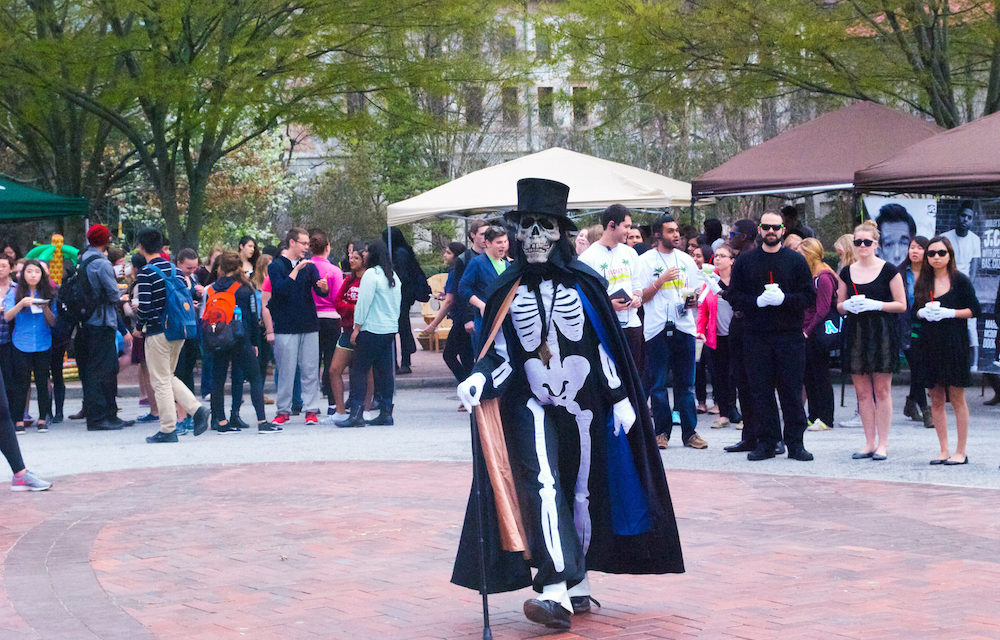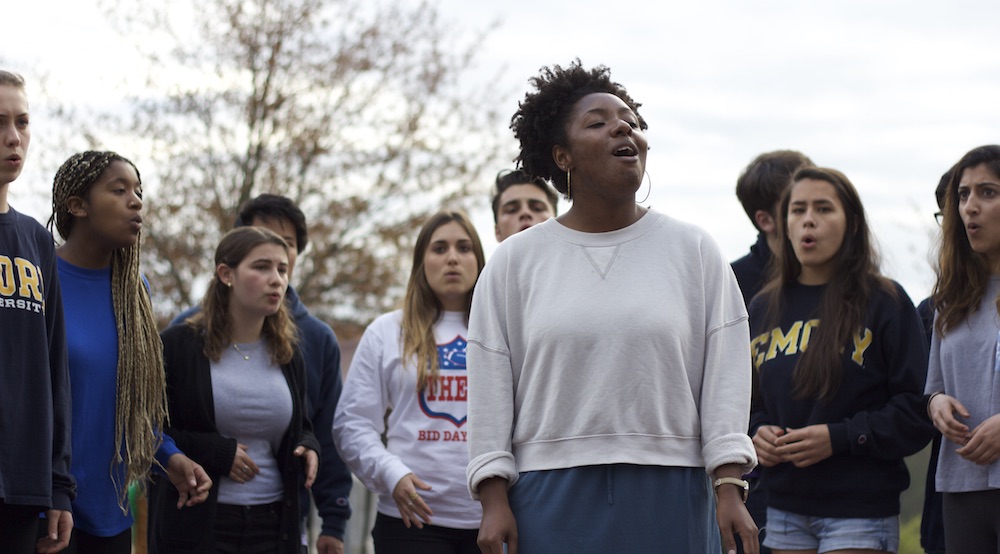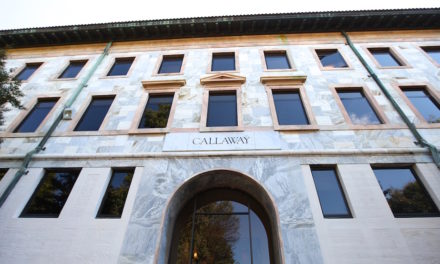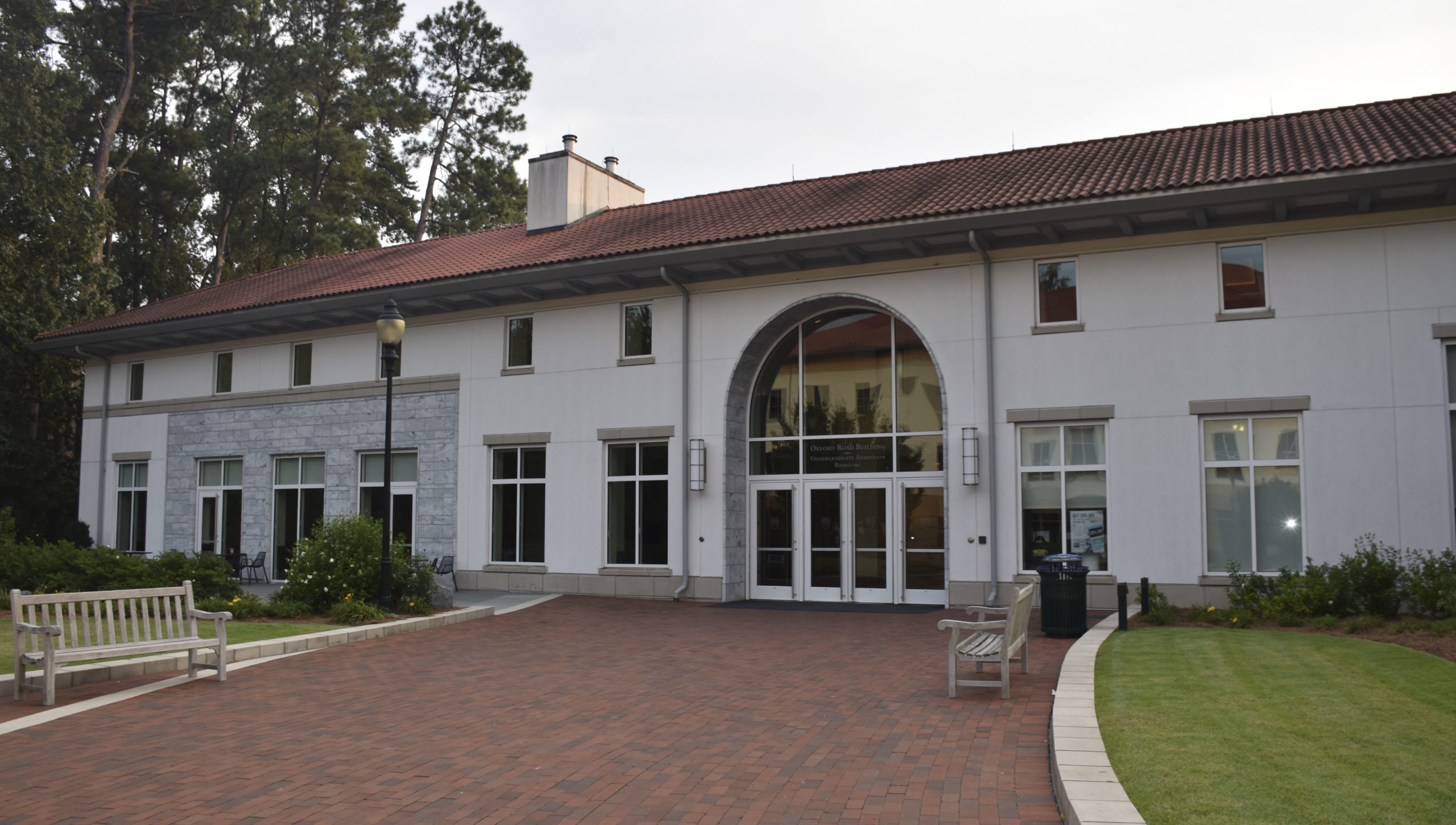Over the past four months, 40 Student Programming Council (SPC) members leveraged their entertainment industry connections and a large and undisclosed budget to put together this year’s Dooley’s Week.
These 40 members, armed with a chunk of every student’s contribution to Emory’s Student Activity Fee (SAF), receive the budget go-ahead from the Student Government Association (SGA) every year.
SPC cannot publish their budget, as this would hinder negotiations and in some cases violate contracts with entertainment contacts, according to the council’s members.
With the SGA’s stamp of approval, SPC members spent months booking artists through industry connections and research. While the members have been unable to gather student input due to fears of raising student expectations too high, as well as the constraints of the negotiation process, they are attempting this year to integrate student responses and are always subject to administrative oversight, according to SPC members.
[quote_box name=””]
This concert isn’t for me specifically — this is a concert for all of Emory. –SPC Dooley’s Week Co-Chair and B-School senior Austin Fuss
[/quote_box]
This year, the SPC Speakers Committee landed former “Saturday Night Live” (SNL) writer John Mulaney for Thursday night’s Dooley’s Week comedy show in the Glenn Memorial auditorium. For the culmination of Dooley’s Week events, the Dooley’s Frolics and Dooley’s Ball Committees chose rapper J. Cole and house music duo The Knocks, respectively.
They’ve brought performers like Kendrick Lamar, Passion Pit, OneRepublic, B.o.B and Chance the Rapper to McDonough Field in the past five years, along with stand-up comedians Amy Schumer, Hannibal Buress and Rob Riggle.
Difficulties in Gathering Student Input
SPC, according to its members, has struggled to find ways to incorporate student input into their decisions but is moving to gather more feedback following the events.
In terms of gauging student preferences prior to the Council’s events, SPC Speakers Chair and Goizueta Business School junior Max Mayblum said the Council has tried surveys, only to receive outlandish recommendations.
“We do a lot of surveying on Facebook,” he said. “It’s a good starting point, but you’ll get people on Facebook suggesting the most world-renowned performers, which is not really feasible.”
SPC Dooley’s Week Co-Chair and B-School senior Austin Fuss stressed that he does his best to keep the whole campus in mind when deciding on a performer.
“This concert isn’t for me specifically — this is a concert for all of Emory,” Fuss said. He added, in reference to the choice of J. Cole for Dooley’s Frolics, “I personally am not a fan of rap.”
Although requested by some students, a pre-decision vote would not be possible as it would potentially sacrifice SPC’s ability to bring performers to campus, according to Band Party Co-Chair and B-School senior Jon Goldman.
Solidifying the arrangement, according to Goldman, can take months — the process of booking J. Cole, for example, began in December.
“Therefore, when unforeseen opportunities arise it can be difficult to incorporate student input as even waiting 24 hours may cost us the chance of booking such an artist,” Goldman wrote in an email to the Wheel. “Once negotiations begin with our artists, we are contractually obligated to not release the name of the artist until a set date specified in the contract.”
Fuss also emphasized the risk of publicizing the names of possible acts, as SPC could potentially raise students’ hopes for a certain performer and then have to inform the entire student body that those plans fell through. Still, he said that SPC “wouldn’t be opposed to” a survey on students’ general musical preferences.
As for getting a sense of student approval after the event, Fuss said, “We try to get as much feedback as we can, through the surveys we send out, and people often email us and give us feedback.”
However, he added, those who go out of their way to give feedback via email are generally not doing so to commend SPC.
“When people reach out to us it’s generally like, ‘Oh, here’s a way you can improve,’” he said.
Even after SPC announces performers’ names or hosts an event, student feedback is something SPC could and continues to improve, Mayblum said. He pointed to the 100-plus Facebook shares of SPC’s John Mulaney announcement as a solid indicator of student approval.
“We definitely could put out some more formal surveys,” Mayblum said. He also suggested that SPC could provide a business ratings or customer service review system to event attendees as they exit.
Mayblum added that SPC will begin using card readers at events for the first time this year. Though SPC won’t receive information on the specific identities of those who attend the events, the Council will be able to see information such as the attendee’s school and year, which Mayblum said SPC can use to get an idea of which audiences it needs to better engage.
How It’s Possible: The SPC Budget
Neither SPC nor SGA makes SPC’s budget public, and the other University-Wide Organizations’ (UWO) budgets remain undisclosed as well, according to SGA President and College junior Jon Darby. SGA does not describe the budget in dollar amounts at its public meetings, according to SGA Vice President of Finance and College senior Patrick O’Leary. SPC members cited contractual obligations and negotiating needs as reasons for not disclosing their budget.
When asked whether SPC considered making the budget public, Fuss said. “I can definitely see both sides of that, but no, I don’t know of any plans to do that at this time.”
The SPC budget amount approved by SGA comes from the UWO account, a portion of total revenue the SGA receives from the SAF, according to O’Leary.
Each actively enrolled University student pays $184 for the annual SAF. The UWO account is 76 percent of another account of the SAF revenue called the University-Wide Distribution. Different divisions, such as the College, the School of Medicine and Candler School of Theology, contribute varying portions of their SAF to this distribution.
SGA recently increased the SAF from $178 to $184 annually and adjusted the percentages of divisions’ contributions to the University-Wide Distribution.
This change will take effect for the 2015-2016 year.
Each year, SGA determines what portion of the UWO account will be dedicated to SPC for the following academic year while considering the needs of the other UWOs, according to O’Leary.
For its yearly budget, the SPC treasurer submits the group’s desired amount of funding to the SGA.
SGA’s vice president of finance, UWO treasurer and SGA Finance Committee must approve the requested funding, according to O’Leary. The SGA vice president of finance, UWO treasurer and SGA Finance Committee must do so for all UWOs, which in addition to SPC includes the Media Council, the Club Sports Council, Student Legal Services and Outdoor Emory Organization. According to O’Leary, he is currently in the process of ironing out SPC’s budget for the 2015-2016 year.
The budget allocations to different UWOs, O’Leary added, “almost always have to be weaned down” and are primarily based on how much UWO account money is available.
Within SPC, the president and treasurer decide how to divide the budget among different SPC committees based on the costs of past performers brought to Emory by each committee, according to members.
The Council splits its budget between the Dooley’s Week Committee, Band Party Committee, Speakers Committee, SPC Beyond Committee, Special Events Committee and Homecoming Committee, according to SPC Graduate Adviser and Interim Director for Student Leadership Jill Camper. Leftover money, she added, goes to additional non-concert events.
The SGA vice president of finance must approve the council’s transactions, as they do for transactions of other UWOs, according to SGA members. The SGA vice president of finance can deny organizations’ transactions if they violate the SGA Finance Code or University Policy; but according to Darby, this is virtually never the case for SPC.
“Paying for a performer does not violate the SGA Finance Code, so we would automatically approve the transaction,” Darby said. According to O’Leary, this “automatic” approval doesn’t warrant his review, regardless of choice or cost.
The SPC’s budget allocations and expenditures, which also are not public, are approved by Camper, the SPC president and the SPC treasurer, according to Camper.
Camper added that leftover funds SPC did not spend on Homecoming Week and Dooley’s Week go to “a variety of events each year outside of concerts,” such as last October’s Halloween-themed event “Scream on the Green,” last April’s “Puppypalooza” event co-sponsored with the animal-friendly volunteer group Pawsitive Outreach and a March 2014 “5K Retro Run” race.
How Oxford Does It
Oxford College’s version of SPC, the Student Activities Committee (SAC), uses a pre-event planning survey, according to SAC Graduate Advisor Judy Sun.
“SAC surveys Oxford students for feedback after larger, annual events and uses that information to inform the programming and planning the following year,” Sun wrote in an email to the Wheel.
She added that, unlike Emory’s SPC, SAC uses both verbal input from Oxford students who speak with SAC members during the planning period and “preferences for genre and artist are also surveyed to help determine the spring concert artist during Spirit Week.”
Though the SAC, which receives 60 to 100 applications annually and currently consists of 24 students, does not publish its own budget and expenditures, SAC presents its budget and expenditures to Oxford’s SGA at the SGA’s public meetings, at which SGA often publicly modifies the SAC’s budget.
SPC Knows People Who Know People
SPC’s entertainment industry connections have accumulated over the years and rely on past and present members’ networking abilities, according to SPC members.
According to Mayblum, like the other SPC chairs, each speakers chair, who coordinates comedy acts for Dooley’s Week and Homecoming Week, as well as various SPC-hosted speaker series, passes the contact information of around 10 agents down from chair to succeeding chair. (Around 150 students apply for membership each year, according to Camper, and 12 to 15 are accepted.)
“[The agents] give us a quick list of who’s on their roster, I look at how this fits into the budget, and then I do a quick look-around, like ‘how will this speaker serve the community?’” Mayblum said. He added that he conducts research on the listed comedians’ career states — for example, Mulaney’s new show piloted last fall, and he is currently travelling the country on a comedy tour.
Mayblum also said he pays attention to whether performers will be in or near Atlanta during or around Dooley’s Week. As a stop on many entertainers’ U.S. tours, he said, the city of Atlanta itself attracts both high-profile comedians and musicians alike.
“There’s a lot of negotiation,” Mayblum said. He added that he begins by picking favored comedians from the agents’ lists and calling the agents directly to offer a price with his committee budget in mind. The agent then talks to the performer or the performer’s manager.
While Mayblum — as SPC speakers chair — presides over the choice of comedian, Fuss, one of the two SPC Dooley’s Week chairs, oversees the booking and decision making process for the musicians.
“The Band Party chairs have the final say [over committee members’ choices] — they reach out to the agents,” Fuss said. “We give [committee members] our input, how we felt about each option.”
After the chairs have settled on the two musicians — in this case, J. Cole and The Knocks — and a comedian — John Mulaney — Camper, the Council’s advisor, gives her approval, according to SPC members.
Camper wrote in an email to the Wheel that her goal is not to choose the artist, but to help SPC students “see the big picture and think through everything” during the planning process.
“Once we have talked through everything, including many risk management conversations, we move forward with extending an offer,” Camper wrote. “I have rarely told SPC ‘no’ — my goal is always to get to a ‘yes.’”
While Camper mentioned keeping the Emory Police Department up-to-date on SPC’s finalized plans, Goldman, who along with Band Party Co-Chair and Business School senior Adam Bates, reaches out to musicians’ agents, said SPC members even have to apply for “proper permitting” from DeKalb County before hosting a large-scale concert event.
“Oversight is especially important when we consider the feasibility and risk of a concert of such a large scale,” Goldman wrote in an email to the Wheel. “No actions are made by SPC without approval by all necessary parties.”
Camper, Mayblum said, “is there with us the entire way.”
“She’s involved in a lot of it herself,” he said, adding that Camper also connects SPC to entertainers’ agents by attending various networking events throughout the year.
“When she saw John Mulaney on the list, she suggested strongly that I pursue him.”
The entire process, according to Camper, is extremely variable from year to year.
“Sometimes we put out an offer [to a manager or agent] and confirm [the performance date] within a week, and other years we are going back and forth with agents for months,” Camper wrote in an email to the Wheel. “Pricing, scheduling, routing and availability all play a role, in addition to SPC gauging which artists would be most successful on campus.”
Goldman agreed, adding that some performance bookings require only “a few communications to secure an artist and agree on a price,” while sometimes SPC negotiates with agents for several months before agreeing on a price.
“This is always a negotiation process,” he wrote. “I believe SPC has been very successful in using its limited resources to bring the best talent possible.”
Who Is SPC?
Any University student — graduate or undergraduate — can apply for SPC membership in September, according to the group’s website and Facebook page. SPC publicizes its application through social media every year, counting down the minutes up to the deadline on Facebook, as it did in September 2014.
The candidates are evaluated on their experience in event planning, creativity, teamwork abilities, availability, how they would contribute to SPC’s diversity and their awareness of what’s happening on campus, according to SPC’s website.
According to its website, SPC members “will deepen their appreciation for diversity and understand the creativity that can arise when diverse viewpoints exist and are openly shared,” as well as “value diverse additions to the council through recruitment.”
By maintaining a group of varying interests and tastes within SPC, according to Camper, the Council has developed outreach efforts over the years to both increase and diversify its applicant pool.
Two recruitment officers within SPC are responsible for reaching out to Campus Life offices like the Office of Lesbian, Gay, Bisexual and Transgender Life, the Office of Multicultural Programs and Services and the Office of International Student Life, according to Camper. These two members are also responsible for advertising the SPC application in freshman residence halls and to campus organizations like Emory PRIDE, Indian Cultural Exchange and Volunteer Emory.
Once SPC accepts a dozen or so new members from a pool of around 150 applicants in a given year, these two recruitment members are responsible for their training, according to Camper. Still, she added that “there is always room for improvement.”
– By Lydia O’Neal
Correction (3/24 at 11:56 a.m.): Paragraph 12 under the subhead “How It’s Possible: SPC’s Budget” incorrectly stated that the council’s budget is allocated among Dooley’s Week Committee, Band Party Committee and Speakers Committee. The SPC budget is split between these three committees, as well as the SPC Beyond, Special Events and Homecoming Committees. Leftover money goes to non-concert events.
Correction (3/29 at 9:07 p.m.): Paragraph 1 under the subhead “How Oxford Does It” incorrectly stated that Judy Sun’s title is SAC’s faculty adviser. She is SAC’s graduate adviser.
A College senior studying economics and French, Lydia O’Neal has written for The Morning Call, The Philadelphia Inquirer, Consumer Reports Magazine and USA Today College. She began writing for the News section during her freshman year and began illustrating for the Wheel in the spring of her junior year. Lydia is studying in Paris for the fall 2015 semester.







